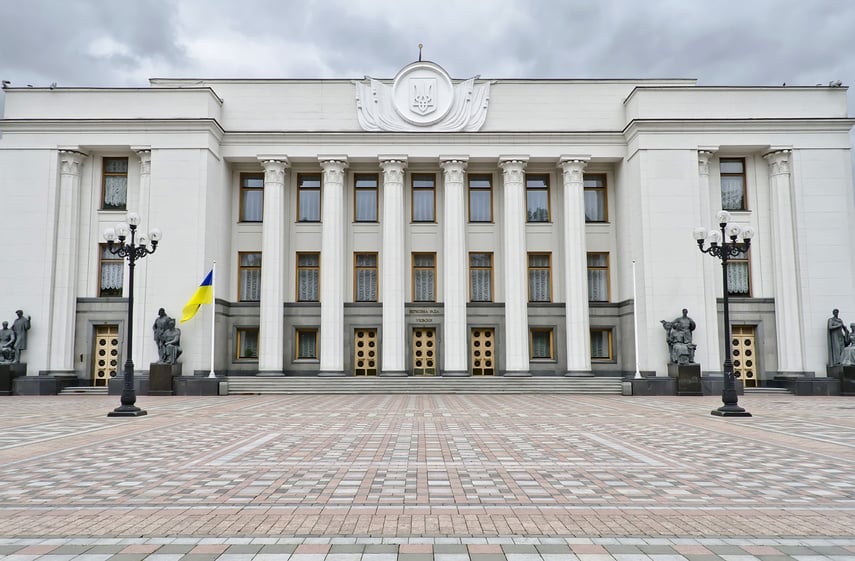A law requiring an upfront disclosure of beneficial ownership of companies to the Ukrainian authorities has been signed by the President. All companies previously registered in Ukraine will be required to disclose their ultimate beneficiaries in a public register. They will have six months from the date when the law takes effect (so approximately, by 1 June 2015) to do so. Implications for Ukrainian companies and the market There has been a global push towards greater transparency in ownership of legal entities, first and foremost fuelled by anti-money laundering efforts. The authorities have now made an effort to introduce similar policies in Ukraine, a jurisdiction known for a heavy use of offshore vehicles and other mechanisms of keeping the ultimate beneficiaries of businesses unknown. All Ukrainian companies will be required to identify their ultimate beneficiaries, maintain and regularly update their records of ultimate beneficiaries, and report to the authorities any changes in their ultimate beneficiaries and/or holders of a material interest (i.e., 10% or more of all shares or votes, held directly or indirectly). All service providers including banks and law firms will be required to identify the ultimate beneficiaries of their clients. What the law says On 23 October 2014 the President of Ukraine signed the Law of Ukraine “On Amending Certain Laws of Ukraine Relating to the Identification of Ultimate Beneficiaries of Legal Entities and Public Figures”. This law is one of the five corruption fighting laws passed by the Parliament on 14 October 2014. It deals with the disclosure of ultimate beneficiaries of Ukraine-registered companies but also with public figures in the context of the AML laws and with access to the state register of real estate rights. The law will take effect in one month after the date when it is published. The ultimate beneficiary information will have to be disclosed to the State Registrar within six months from the date when the law takes effect. We expect the law to be published within a week or so, which will set the deadline at approximately 1 June 2015. The ultimate beneficiary of a legal entity is defined as the individual who has the ability to decisively influence, directly or through others, the operational management or business activities of that legal entity, irrespective of actual ownership by that individual of any interest in that legal entity. In particular, an ultimate beneficiary is someone with the right to decisively influence the composition of the management of the company or the decision-making in the company or someone who has the direct or indirect possession of 25% or more of votes in the company. It is an express provision of the law that an agent, a nominal shareholder or an intermediary is not the ultimate beneficiary for Ukrainian law purposes. The beneficiary disclosure obligation is triggered on registration of the company but also if changes take place in the ultimate beneficiaries and/or holders of a material interest (i.e., 10% or more of all shares or votes, held directly or indirectly). The Ukrainian companies register will, once the law takes effect, include passports details of any individuals who are founders of the company, details of the ultimate beneficiaries of the company (including the details of their passports) and information about the ownership structure of legal entities that are founders of the company that identifies individuals holding a material interest (i.e., 10% or more of all shares or votes, held directly or indirectly) in those legal entities (including the details of their passports). The obligation to identify the ultimate beneficiaries (and keep up-to-date records of this) and to disclose them to the State Registrar is placed on the Ukrainian company itself. Failure to comply with the disclosure obligations may result in the manager (e.g., director) of the company being fined for 5,100 to 8,500 Ukrainian Hryvnyas (which is approximately 400 to 650 US Dollars). Criminal liability for non-compliance which was included in the law originally has been removed in the version of the law passed on 14 October 2014. It is not clear what happens if the fine is paid but no disclosure follows. The AML obligations of banks, asset management companies, law firms, auditing firms and alike have been extended accordingly to require them to identify the ultimate beneficiaries of their clients. Conclusion The new law significantly raises the bar in AML compliance and disclosure of beneficial ownership information generally. As such, it is likely to require concrete and prompt actions by Ukrainian corporates. The effectiveness of this law will largely depend on the availability of control mechanisms (and the authorities’ readiness to use them) but also on whether the market sees this as an appropriate level of regulation, in particular from the privacy point of view given mandatory disclosure of passport details in a public register. This is yet to be tested.
Olyana Gordiyenko is a partner at Baker & McKenzie's Kyiv office. She has more than 13 years of experience advising local Ukrainian and international clients on M&A transactions, including English law governed deals. A large part of her work is in relation to cross-border/multi-country and private equity transactions. Olyana also specializes in joint ventures and reorganizations and provides sound counsel to blue chip Ukrainian companies on general corporate matters. In recent years Ms. Gordiyenko has been focusing on private equity, FMCG, healthcare and oil & gas sectors. In addition to M&A deals in oil & gas industry, Olyana has developed an in-depth knowledge of regulatory, technical and practical issues pertaining to all stages of oil & gas exploration and production and is now the head of Oil & Gas Practice Group in the Kyiv office.



